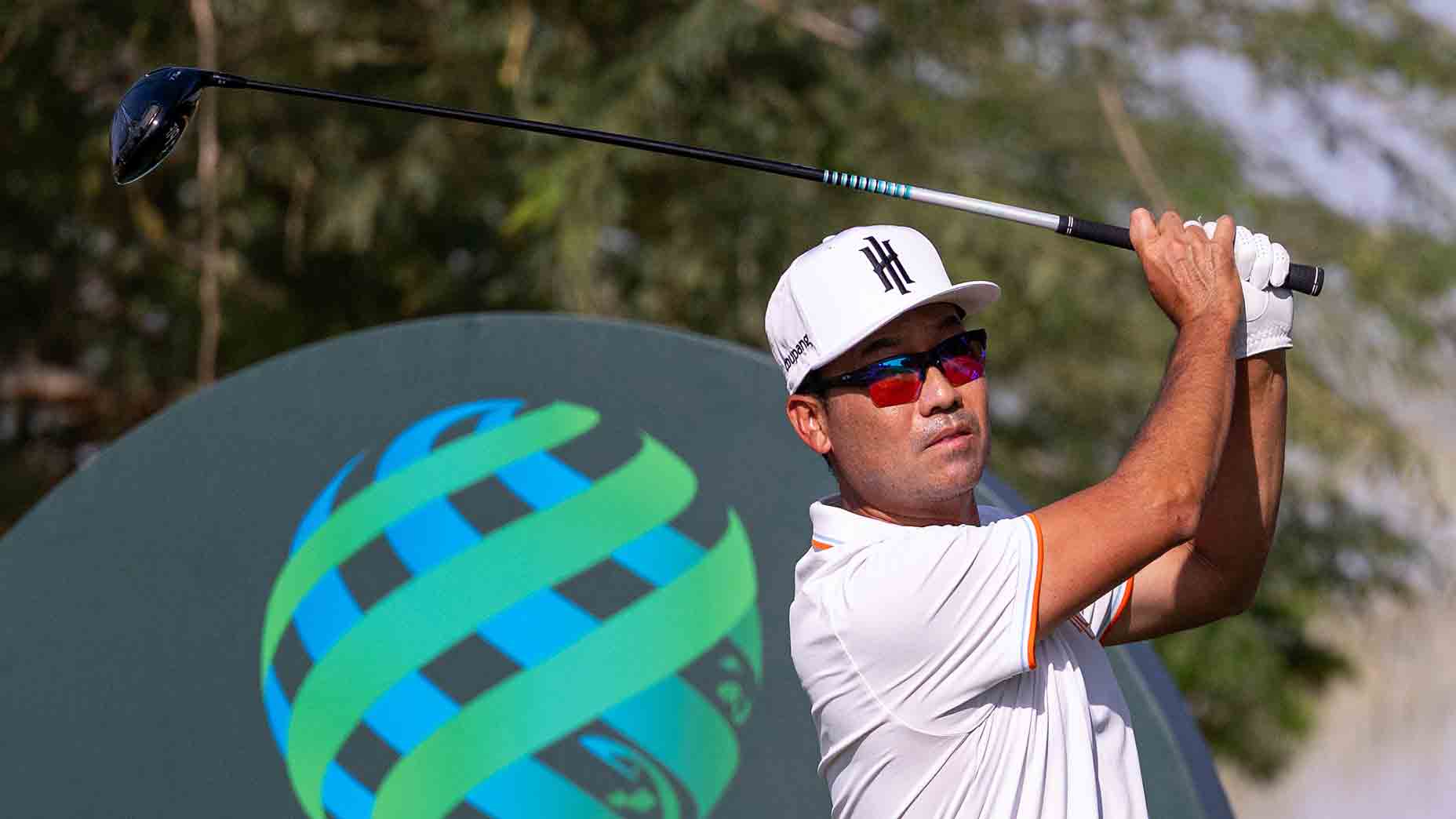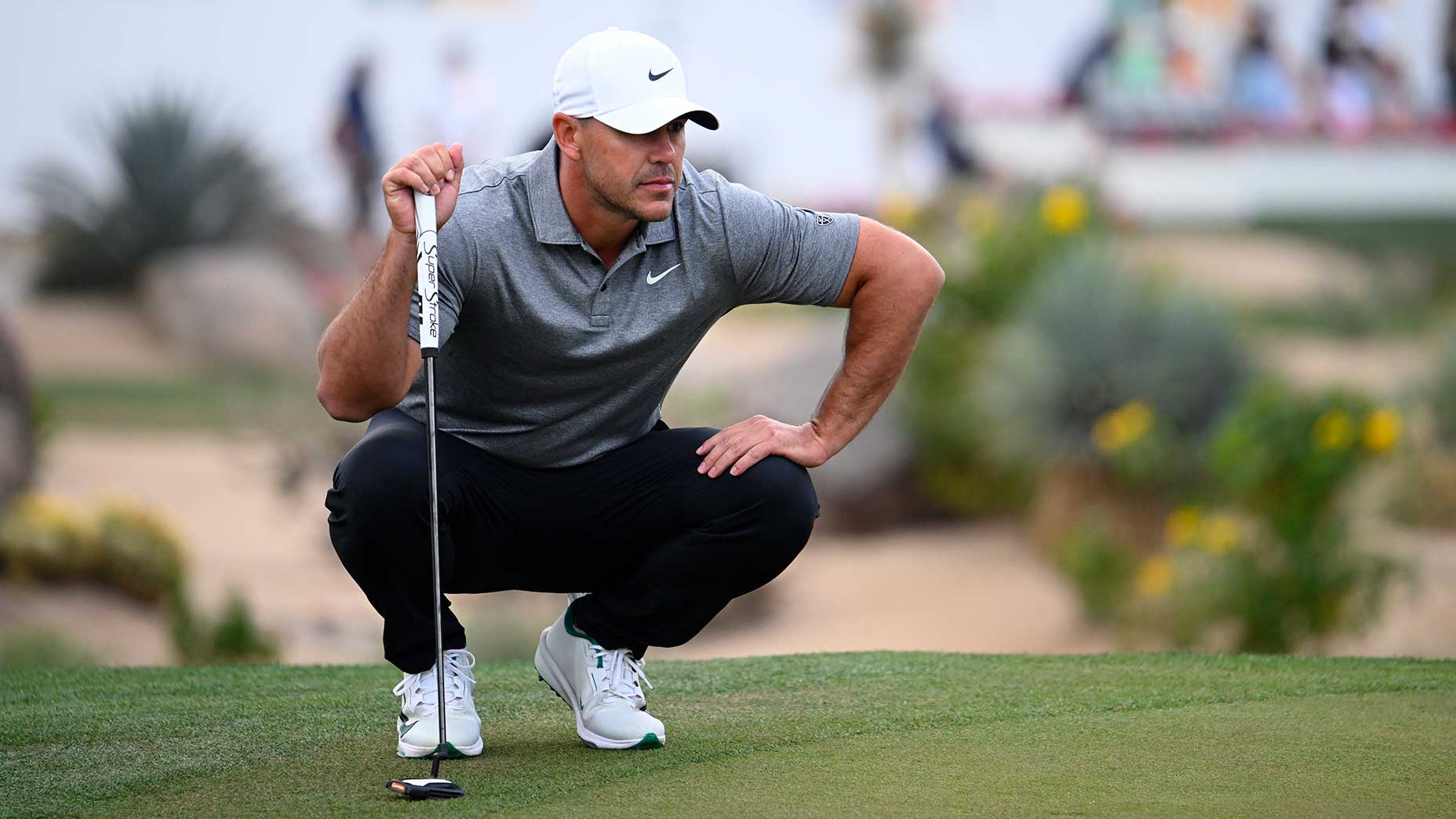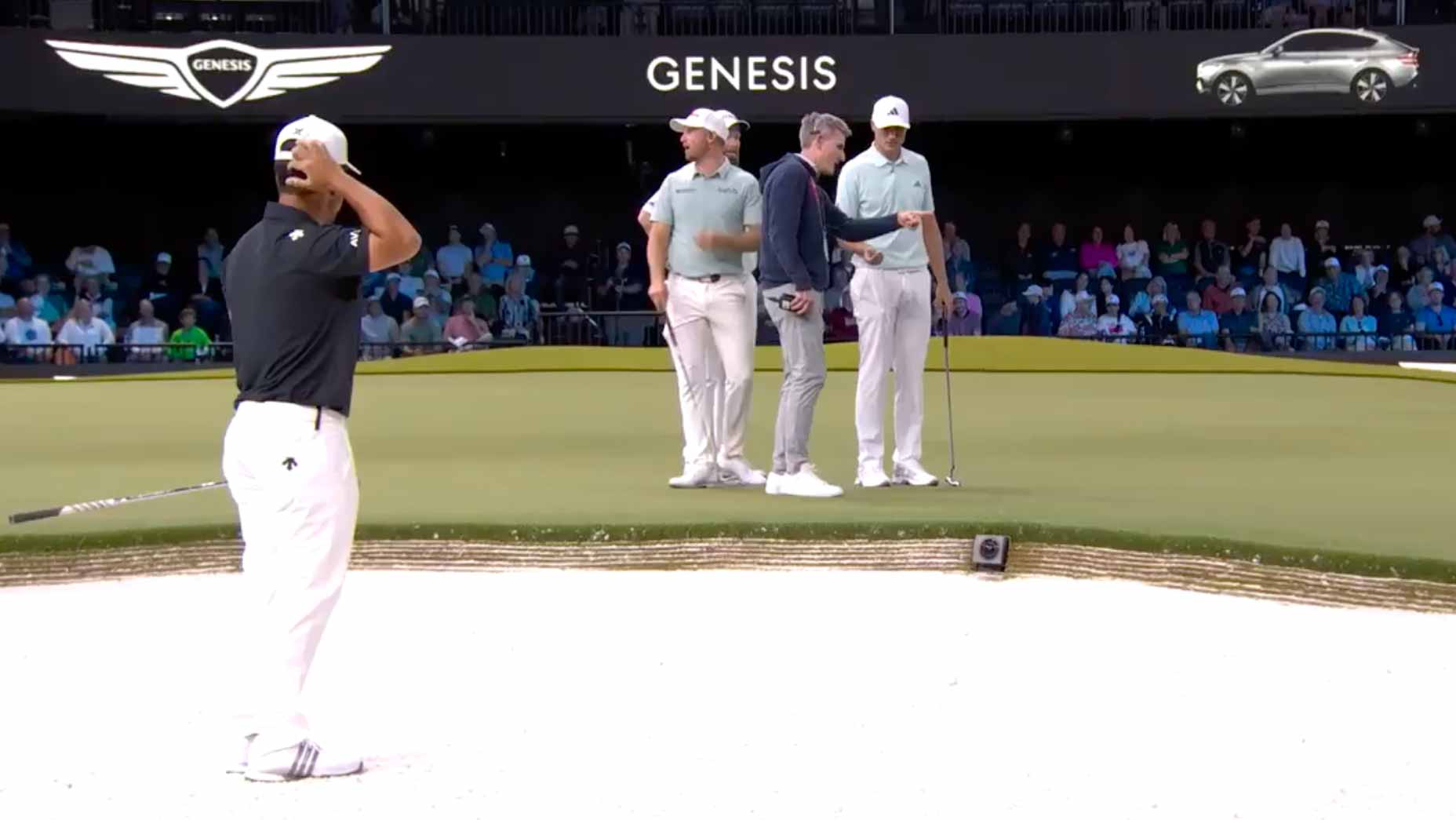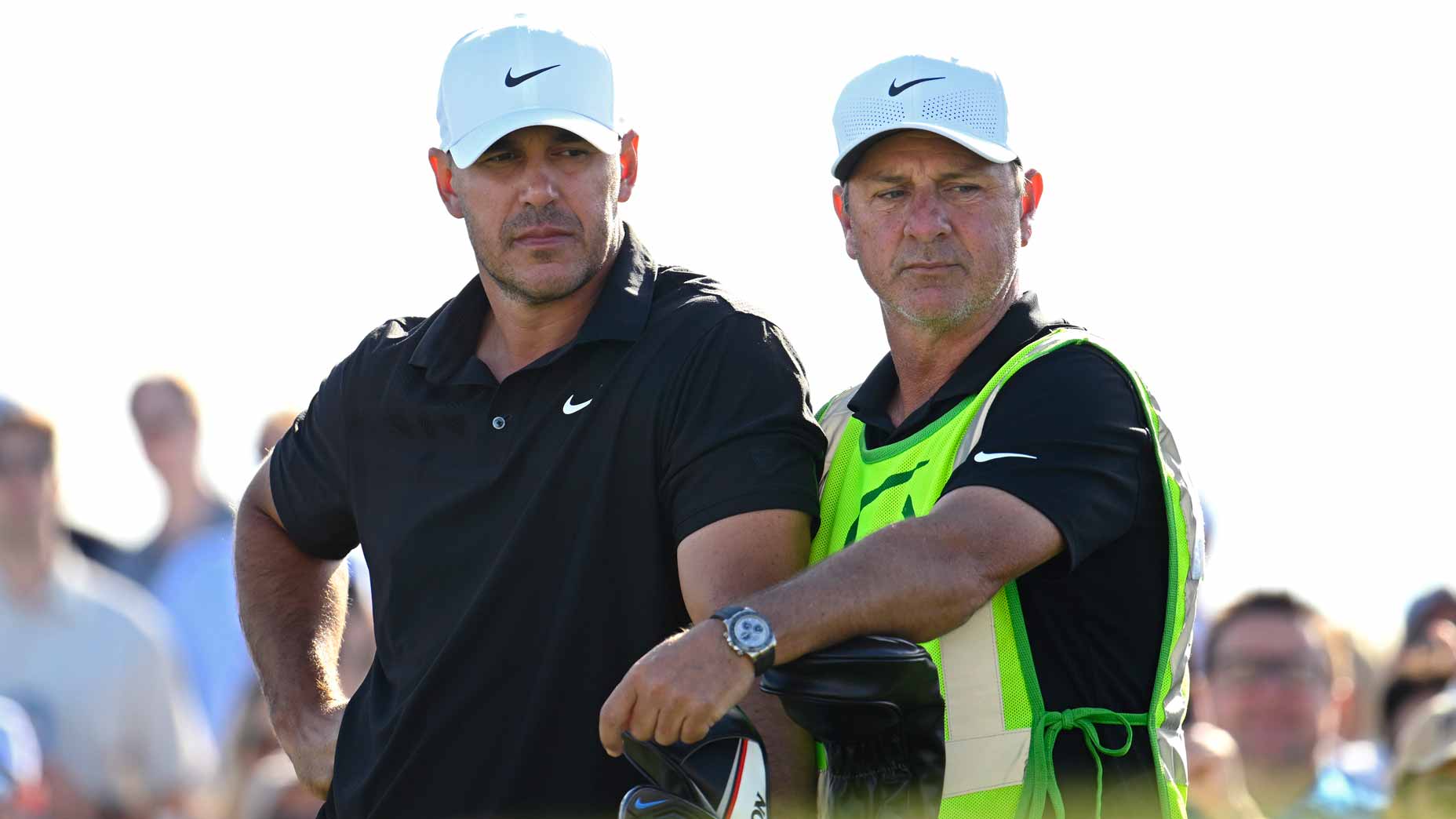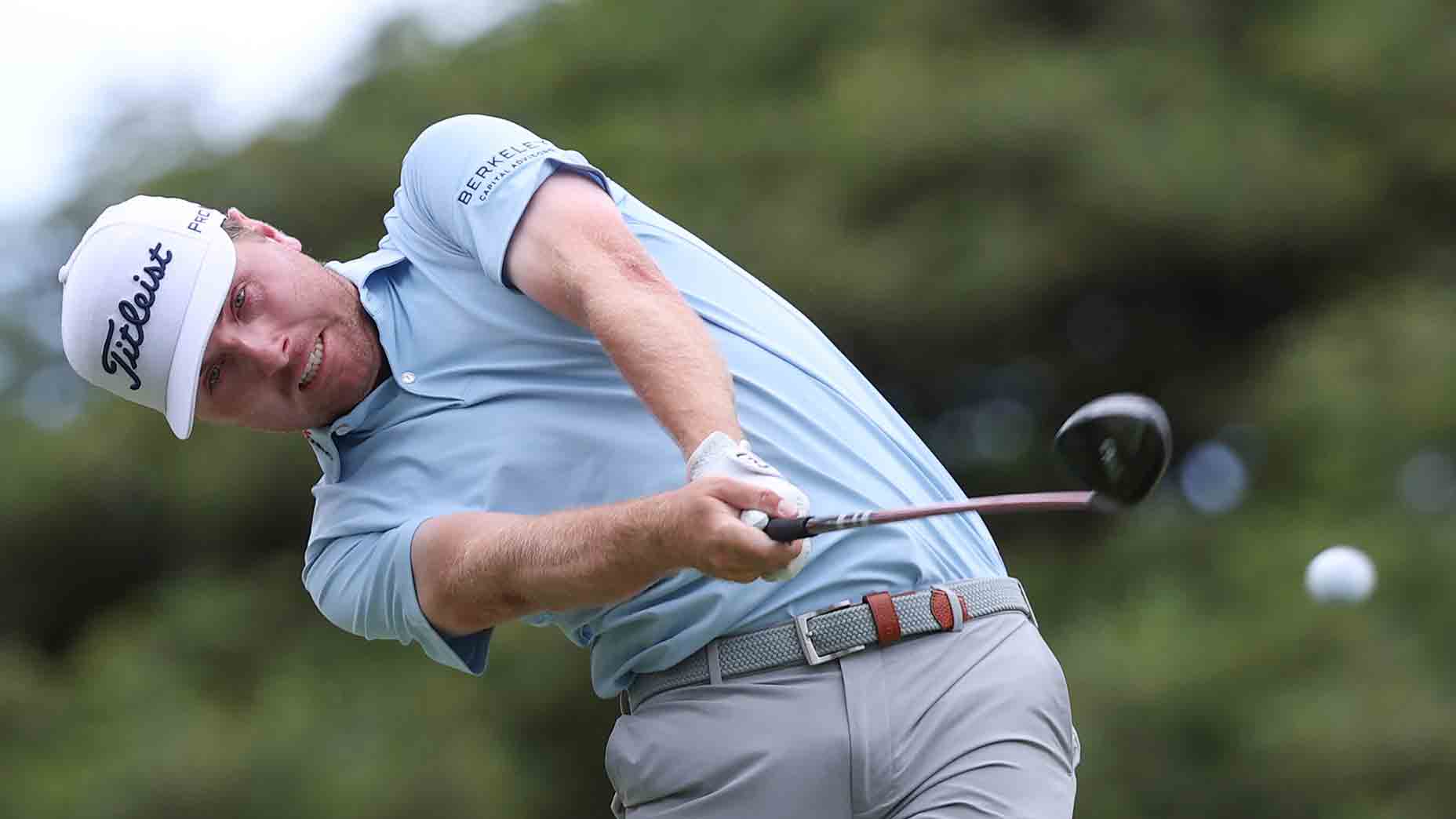 One of the world’s best opens up … on a swing he dislikes looking at
One of the world’s best opens up … on a swing he dislikes looking at
Money Game: The PGA Tour Champions is a lucrative option for late bloomers
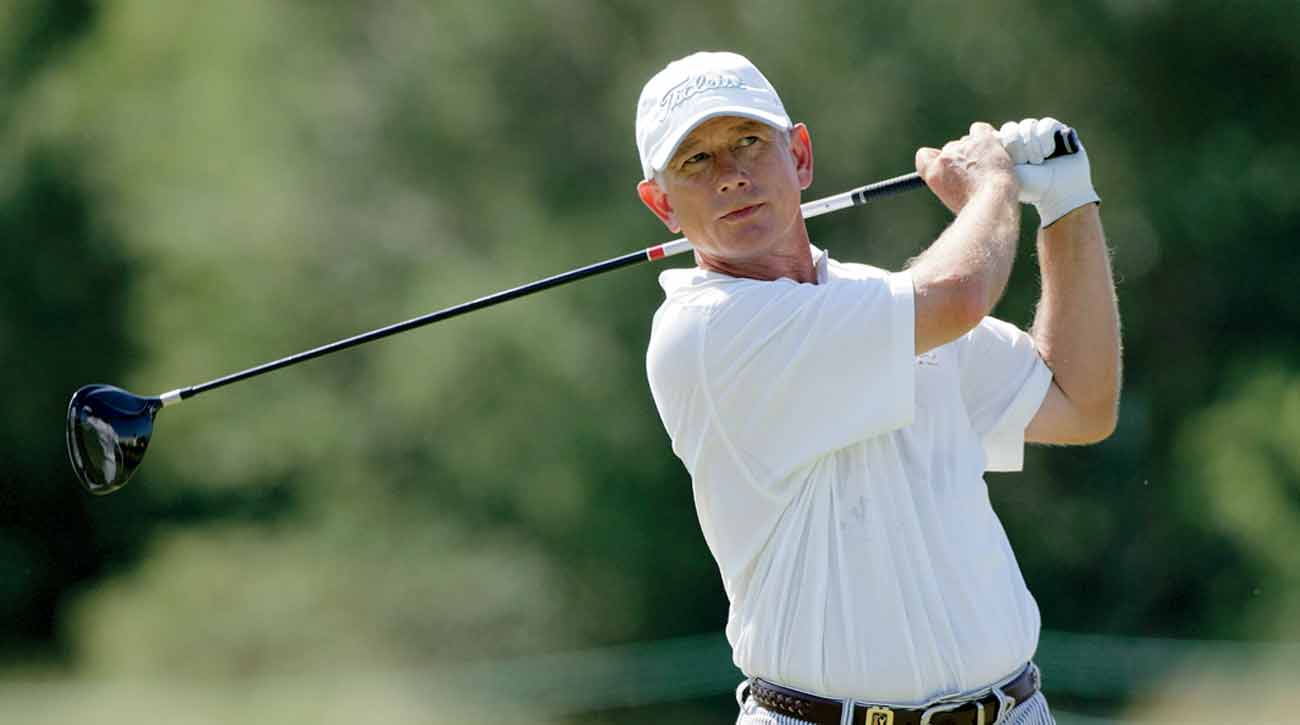
Mike Goodes was playing the finest golf of his life at age 49. In one year, he won the three most prestigious amateur tournaments in North Carolina against men 20 or 30 years his junior. At a plus-5 handicap, his golf life was nirvana. Then he got a wild idea. Why not turn pro at 50 and make a go of it on the PGA Tour Champions? He’d never played professionally; he hadn’t even played college golf. He also had a day job — running a plastics recycling company.
But his wife and business partner supported him. So why not try to fulfill every amateur’s dream of teeing it up with the legends and making a run at the prize money and prestige? Then a strange thing happened: Goodes made it. And for the past decade he has maintained fully exempt status on the Champions Tour, where he has played 271 events and taken home $6.17 million. In 2009, he won the Allianz Championship, where he bested a field that included Bernhard Langer, the Tour’s top player.
“I made more money when I was playing good golf than I did in my business,” Goodes says. “For me to say the money meant nothing, I’d be lying. It’s been a blessing.”
Every scratch golfer has, on some level, wondered what it would be like to trade amateur greatness to tee it up with the pros, to go head-to-head with legends like Fred Couples, Tom Watson and Langer, who remains dominant at age 62.
Fulfilling that dream is even harder than it looks — don’t even think about it unless your handicap is plus-something — and it isn’t cheap. Goodes says over 60 percent of what he has won has gone to paying taxes, his caddie and travel expenses.
The most successful amateur ever to turn pro late in life was Jay Sigel. At the time he qualified for what was then the Senior Tour in 1993, he had an amateur record that rivaled Bobby Jones’. He competed on nine Walker Cup Teams and in 1983 won both the U.S. Amateur and U.S. Mid-Amateur. He was the low amateur at the U.S. Open, the British Open and three times at the Masters.
He also had a lucrative insurance business outside of Philadelphia where he grew up. To trade that for a chance at the tour was a huge risk to his reputation, particularly if he failed. He wasn’t any amateur; he was a spokesman for the amateur game. “Trevino, Palmer, Nicklaus, David Fey — they all said I should try it,” says Sigel, who admits to having some nerves as he went through Q-School at age 50. “Once I made it and was able to compete against my childhood heroes, that was pretty special. Then to socialize with them was even better.”
Sigel had a great 10-year run and remains among the top 30 all-time money winners on the Champions Tour, with over $9 million in prize money. He had eight victories and finished in the top 10 more than 100 times. But translating his match-play mind-set of winning to the money game of professional golf was a challenge — at first. “In an amateur event, no one remembers who finishes fourth,” he says. “In professional golf, you have to build up your earnings to stay exempt for the next year.”
For others, Q-School can be a bucket-list item. Ken Tanigawa, who had been a good college player but didn’t make it professionally, had been running a family business from Scottsdale.
In his early 40s, married with two kids and not much golf, he ran into old friends who convinced him to join Whisper Rock. The club boasts a membership of PGA Tour players like Paul Casey, Geoff Ogilvy and Phil Mickelson.
Tanigawa’s game came back, and he gained respect around the club — for beating the pros. “Every once in a while I was able to get into their wallet,” he demurs. “To do that, to get a couple of shots and beat some of these Tour players, was kind of cool. It gave me some confidence that I could do it.”
Still, when Tanigawa made it through Q-School in 2017, he was shocked. “I said, ‘Oh my God, now what do I do?’ lt was incredible but it was a massive pivot in my life.”
In his first year, he rolled in an eagle putt on the 18th hole at Pebble Beach to win the PURE Insurance Championship by one shot. Last year, he won the KitchenAid Senior PGA Championship. Already he has earned nearly $2 million in prize money.
ADVERTISEMENT
“While a lot of folks think the PGA Tour Champions may be a closed shop, that’s just not the case,” says Miller Brady, the tour’s president. “Every event has the possibility for an individual to join. If they perform and play well, they can stay out there. A top 10 gets them into the next event, or if they make it through Q-School they have a year to prove it.”
Gary Bendert qualified through a Monday event for the 2016 Dick’s Sporting Goods Open in Endicott, N.Y. It was held at the En-Joie Golf Club, where he played with his pals on weekends. In the tournament, he didn’t break 80 in three rounds and finished last, taking home a check for $920.
Even if he’d played better, Bendert would not have gained the same playing status as, say, Couples or Watson or Langer, who can compete on the Champions Tour as long as they like. The guys who qualify need to finish the year within the top 36 to remain fully eligible. Mike Goodes, now 63, knows that hustle. “I’ve managed to stay exempt all these years,” he says. “I hope to get another year or two out of it.”
If not, his old foursome will have him back — with enough shots.
Read more “Money Game” by Paul Sullivan:
Here’s where the PGA Tour’s money goes
With caddie scholarship programs, we can shoulder the needs of those who carry our bags
What’s a professional golfer’s logo worth?
To receive GOLF’s all-new newsletters, subscribe for free here.
ADVERTISEMENT



